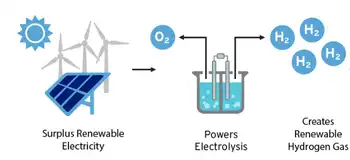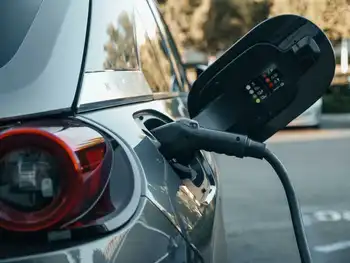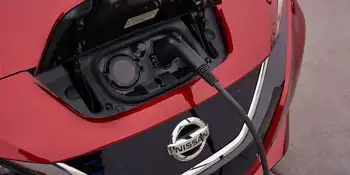Hitachi Energy to accelerate sustainable mobility in Germany's biggest city

Substation Relay Protection Training
Our customized live online or in‑person group training can be delivered to your staff at your location.

- Live Online
- 12 hours Instructor-led
- Group Training Available
Grid-eMotion Fleet Smart Charging enables BVG Berlin to electrify bus depots with compact grid-to-plug DC infrastructure, smart charging software, and high reliability, accelerating zero-emission electric buses, lower noise, and space-efficient e-mobility.
Key Points
Grid-to-plug DC charging for bus depots, with smart software to reliably power zero-emission electric bus fleets.
✅ Up to 60% less space and 40% less cabling than alternatives
✅ DC charging with smart scheduling for depot operations
✅ Scalable, grid-code compliant, low-noise, high reliability
Grid-eMotion Fleet smart charging solution to help the City of Berlin reach its goal of a zero-emission bus fleet by 2030
Dubai, UAE: Hitachi Energy has won an order from Berliner Verkehrsbe-triebe (BVG), Germany’s biggest municipal public transportation company, to supply its Grid-eMotionTM Fleet smart charging infrastructure to help BVG transition to sustainable mobility in Berlin, the country’s capital, where an electric flying ferry initiative underscores the city’s e-mobility momentum.
Hitachi Energy will provide a complete Grid-eMotion Fleet grid-to-plug charging infrastructure solution for the next two bus depots to be converted in the bus electrification program. Hitachi Energy’s solution offers the smallest footprint for both the connection, as well as low noise emissions and high reliability that support grid stability across operations – three key requirements for bus depots in a densely populated urban environment, where space is limited and flawless charging is vital to ensure buses run on time.
The solution comprises a connection to the distribution grid, where effective grid coordination streamlines integration, power distribution and DC charging infrastructure with charging points and smart charging systems. Hitachi Energy will perform the engineering and integrate, install and service the entire solution. The solution has a compact and robust design that requires less equipment than competing infrastructure, which results in a small footprint, lower operating and maintenance costs, and higher reliability. Typically, Grid-eMotion Fleet requires 60 percent less space and 40 percent less cabling than alternative charging systems; it also provides superior overall system reliability.
“We are delighted to help the City of Berlin in its transition to quiet and emission-free transportation and a sustainable energy future for the people of this iconic capital,” said Niklas Persson, Managing Director of Hitachi Energy’s Grid Integration business. “We feel the urgency and have the pioneering technology and commitment to advance sustainable mobility, thus improving the quality of life of millions of people.”
BVG operates Germany’s biggest city bus fleet of around 1,500 vehicles, which it aims to make completely electric and emission-free by 2030, and could benefit from vehicle-to-grid pilots to enhance flexibility. This requires the installation of charging infra-structure in its large network of bus depots.
About Grid-eMotion:
Grid-eMotion comprises two unique, innovative solutions – Fleet and Flash. Grid-eMotion Fleet is a grid-code compliant and space-saving grid-to-plug charging solution that can be in-stalled in new and existing bus depots. The charging solution can be scaled flexibly as the fleet gets bigger and greener. It includes a robust and compact grid connection and charging points, and is also available for commercial vehicle fleets, including last-mile delivery and heavy-duty trucks, as electric truck fleets scale up, requiring high power charging of several megawatts. Grid-eMotionTM Flash enables operators to flash-charge buses within seconds at passenger stops and fully recharge within minutes at the route terminus, without interrupting the bus schedule.
Both solutions are equipped with configurable smart charging digital platforms that can be em-bedded with larger fleet and energy management systems, enabling vehicle-to-grid capabilities for bidirectional charging. Additional offerings from Hitachi Energy for EV charging systems consist of e-meshTM energy management and optimization solutions and Lumada APM, EAM and FSM solutions, to help transportation operators make informed decisions that maximize their uptime and improve efficiency.
In the past few months alone, Hitachi Energy has won orders from customers and partners all over the world for its smart charging portfolio – a sign that Grid-eMotion is changing the e-mobility landscape for electric buses and commercial vehicles, as advances in energy storage and mobile charging bolster resilience. Grid-eMotion solutions are al-ready operating or under development in Australia, Canada, China, India, the Middle East, the United States and several countries in Europe.











